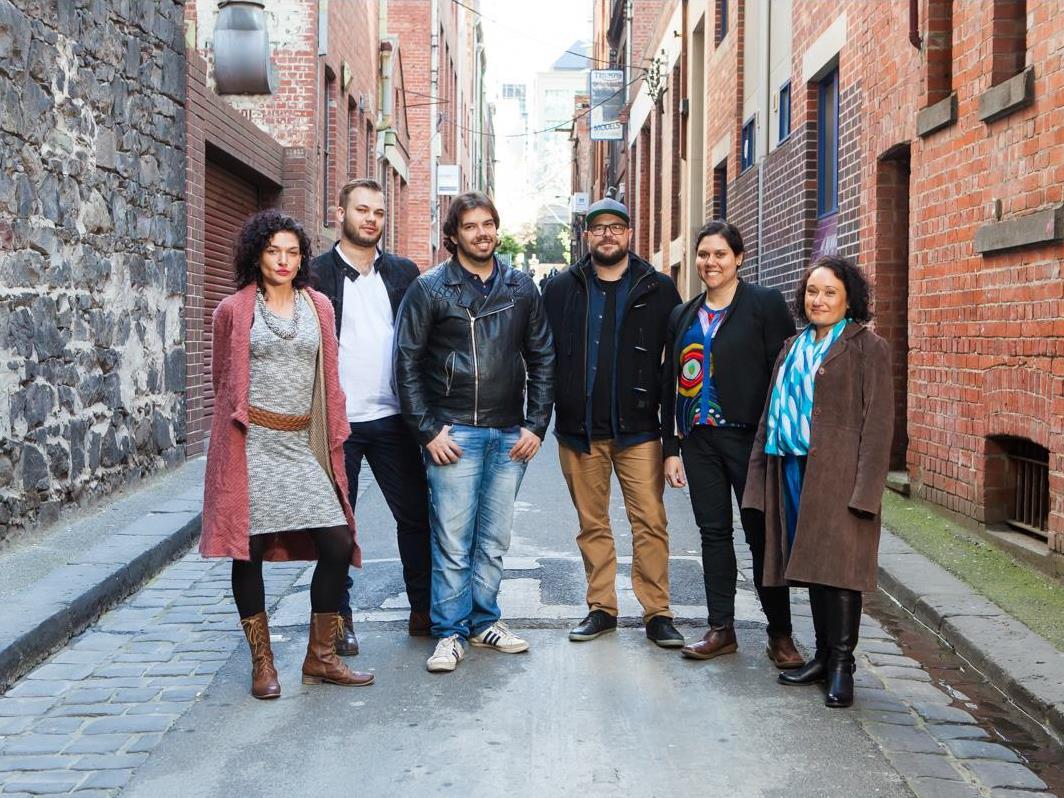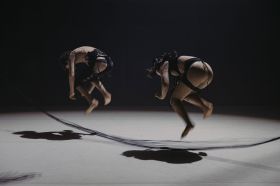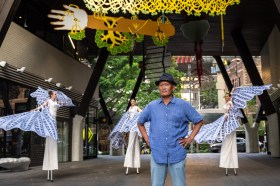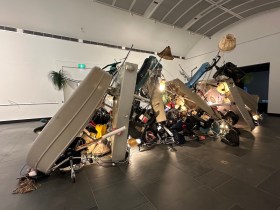ACCELERATE 2016 participants (L-R): Kamarra Bell-Wykes, Travis De Vries, Jonathon Saunders, Glenn Iseger-Pilkington, Jilda Andrews and Francoise Lane. Photo by Mark Gambino © British Council 2016.
ACCELERATE is a unique cultural leadership skills development program that brings together diverse creative practices, encourages professional development, and supports emerging Indigenous arts leaders.
Now in its seventh year, the program provides emerging Aboriginal and Torres Strait Islander artists with the opportunity to participate in a series of facilitated workshops on arts and cultural leadership before travelling to the UK for three weeks in November to take part in tailored professional placements.
This year’s participants include Glenn Iseger-Pilkington, the first Aboriginal curator appointed to the South Australia Museum, and Francoise Lane, the Director of architectural and interior design practice Indij Design in Queensland.
Other participants include Northern Territory illustrator and arts worker Jonathon Saunders; New South Wales arts manager and writer Travis De Vries (who was recently appointed Associate Producer of Melbourne’s Yirramboi Festival); playwright and Ilbijerri Theatre Company’s Education Manager, Kamarra Bell-Wykes; and Jilda Andrews, a curator and PhD candidate at the Australian National University.
ArtsHub caught up with three of the 2016 ACCELERATE participants to hear about their aspirations for their up-coming placements in the UK, their future ambitions and to find out why they applied for the program.
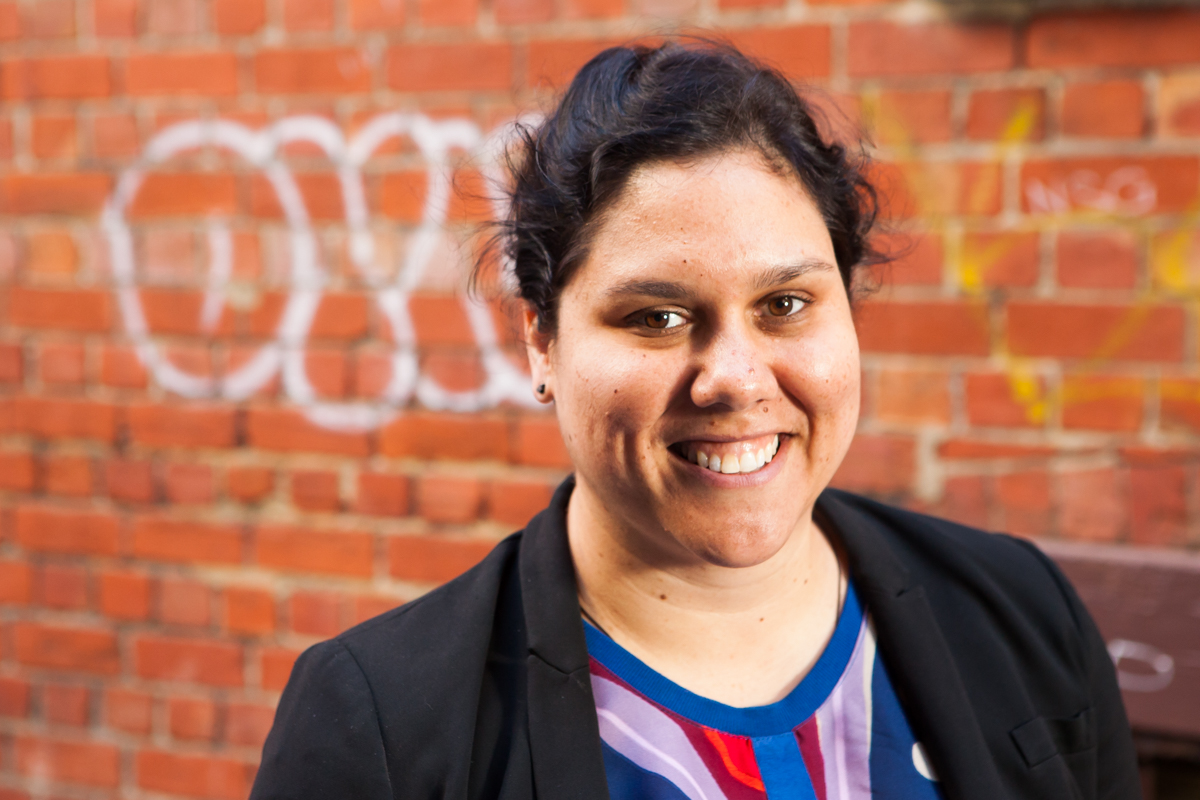
Jilda Andrews; photo by Mark Gambino.
‘I specifically applied for ACCELERATE because I think we are on the cusp of a real national movement of Indigenous arts workers coming together and talking about where we collectively see a positive future,’ said Andrews.
‘I’m looking to be part of that national network development. As something that is formidable, strong, valid and cultural as well.’
Andrews is hoping the experience in the UK will allow her to draw from the British understanding of craft and artisans for her own research on ethnographic collections in Australian museums.
‘They have a real way with language that recognises the value of traditional craft. I don’t think we have the same thing here in Australia, so I’m looking at how their cultural industry and cultural sector is able to value traditional modes of craft and expression.’
De Vries also commented on the connection within the Indigenous Arts industry that emerges through the ACCELERATE program. ‘I’ve spoken to previous ACCELERATE participants and it’s really become a program that brings together a whole bunch of people working in the Indigenous arts industry that are slowly building a working relationship. This is super important and is going to continue to provide future opportunities, not just for the participants, but for the wider Australian Arts industry,’ he said.
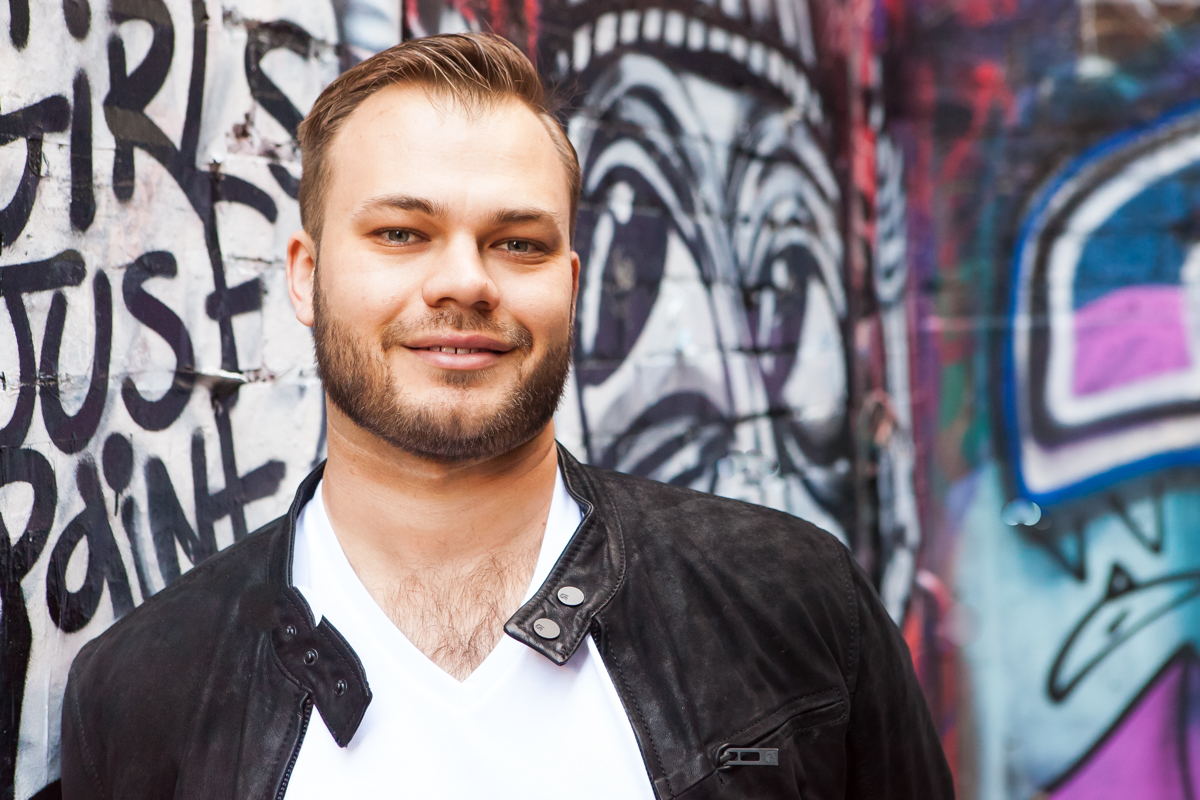
Travis De Vries; photo by Mark Gambino.
For De Vries, ACCELERATE is an opportunity to build international networks that align with his career goal to one day tour both his own work (and that of other artists) in the UK and further abroad.
‘If I can build some connections in the UK and continue to work on myself as a creative and an arts professional than I will feel that it was a successful experience,’ he said.
But the program also provides an opportunity for participants to learn about new developments in their sector. As Bell-Wykes said, ‘it’s named ACCELERATE for the right reason. The feeling is you are going to have such a fast progression and be immersed in stuff you don’t get to experience so much in Australia. It’s happening here, but because we are all so busy we don’t always get to go and see it.’
Bell-Wykes’ passion for community and education will feed into her placement in the UK, although specifics are yet to be confirmed.
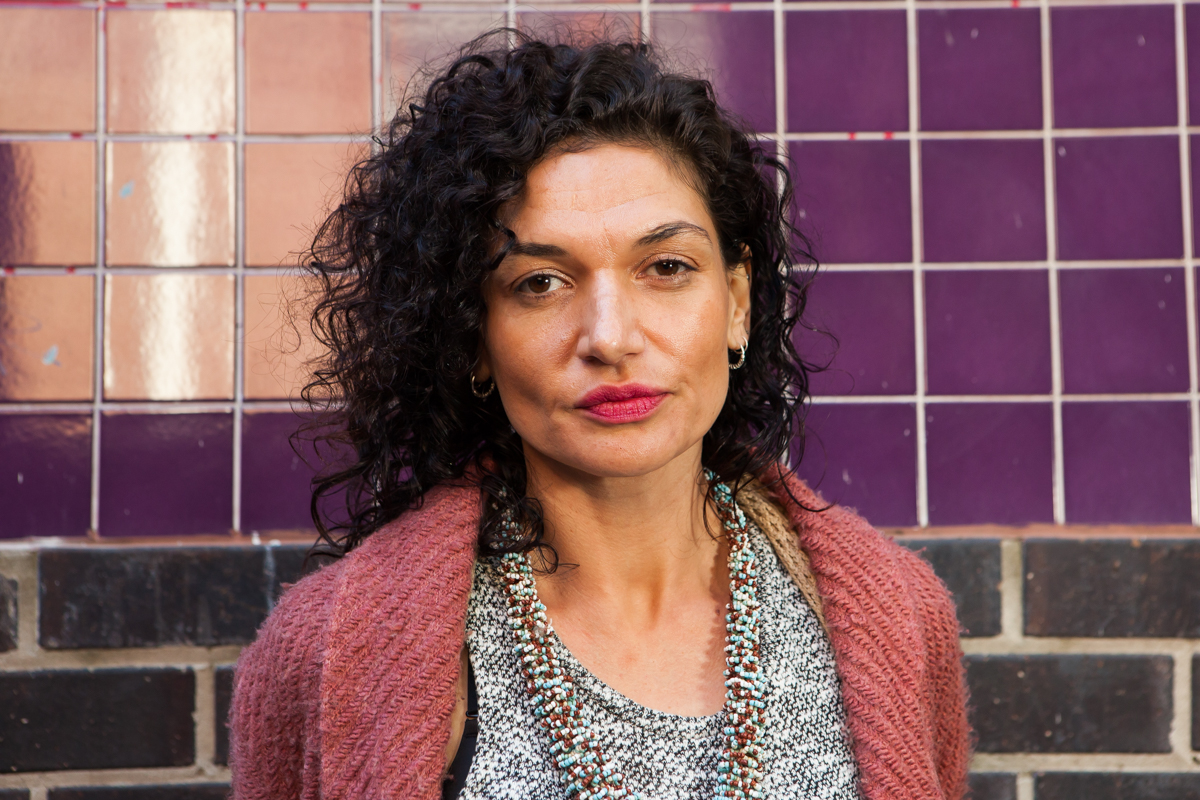
Kamara Bell-Wykes; photo by Mark Gambino.
‘I’m passionate about work in prisons, in schools, in communities, on the streets,’ she said. I want work to be made by people and not necessarily theatre practitioners. I don’t want to tell my stories anymore, I want to be able to facilitate other people to tell their stories and give a voice back to so many of our mob who haven’t discovered that the performing arts is a powerful way for us to get our voices back, to change our stories, to change our narrative, and to re-tell who we are.
‘I really want to go to Wales, I have Welsh heritage as well, and there’s some great companies over there that are doing amazing stuff. I would really like to check out Young Vic and Pilot Theatre in London. Contact Theatre in Manchester is apparently amazing – there’s no shortage of places to visit,’ Bell-Wykes concluded.
ACCELERATE 2016 is presented by the British Council and the Australia Council for the Arts in partnership with Arts NSW, Arts NT, Arts Queensland, Creative Victoria and Department of Culture and the Arts WA with additional support from SBS NITV. For further information, visit accelerate.org.au

